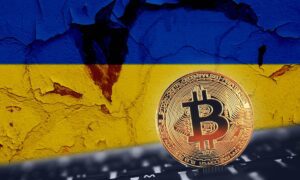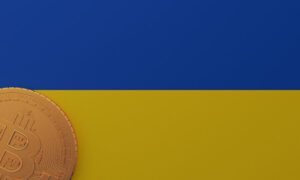
President of Ukraine Volodymyr Zelensky signed a law on virtual assets, which refers this market to the regulation of the National Securities and Stock Market Commission and the National Bank of Ukraine (NBU). According to the Telegram channel of the Ministry of Digital Transformation of Ukraine, with the start of this law, the following changes will be introduced in Ukraine:
– foreign and Ukrainian crypto exchanges will work legally;
– banks will open accounts for crypto companies;
– Ukrainians will be able to protect their savings in virtual assets;
– the state will guarantee judicial protection of rights to virtual assets.
In addition, the National Securities and Stock Market Commission will formulate and implement a policy in the field of virtual assets; determine the procedure for the turnover of virtual assets; issue authorizations to VA service providers; exercise supervision and financial monitoring in this area.
According to the Ministry of Digital Development, this is another important step towards the de-shadowing of the crypto sector and the launch of a legal market for virtual assets in Ukraine. “Since the beginning of the war, crypto assets have become a powerful tool for attracting additional funding in support of the Armed Forces of Ukraine. During the three weeks of the war, the Crypto Fund of Ukraine raised more than $54 million in crypto assets. Today, the president has signed the law on virtual assets. We are launching a legal market for virtual assets in Ukraine and bringing the crypto sector out of the shadows,” Deputy Prime Minister, Minister of Digital Transformation of Ukraine Mykhailo Fedorov wrote on his Telegram channel.

The Verkhovna Rada has adopted, taking into account presidential amendments, the law on virtual assets, which refers this market to the regulation of the National Securities and Stock Market Commission and the National Bank of Ukraine (NBU). Head of the National Securities and Stock Market Commission Ruslan Magomedov noted that the president proposed to attribute this market to existing regulators, since the sources of covering the costs of creating a new body have not been determined.
“Therefore, the President proposes to refer the activities and regulation of the virtual assets market to the competence of the already existing financial regulators – the National Securities and Stock Market Commission and the National Bank of Ukraine,” Magomedov said, speaking from the rostrum of the parliament.
The law, subject to presidential amendments, classifies services related to the circulation of virtual assets as financial services. As noted by the main scientific and expert department of the Verkhovna Rada apparatus, the document, taking into account the presidential proposals, involves cooperation between the two regulators of such services, but it is not indicated by the provisions of which legislative act they will be guided in matters of cooperation and coordination in this area – this law or the law on financial services and state regulation of the financial services market.

Bill No. 3637 on virtual assets was adopted by the Verkhovna Rada at the second reading on Wednesday, and it was supported by 276 MPs.
Deputy Prime Minister, Minister of Digital Transformation Mykhailo Fedorov said in Telegram that currently the daily turnover of virtual assets in Ukraine is UAH 1 billion, but all this is in the shadows. Thus, international exchanges are not able to enter Ukraine. Taxes are not paid on any transactions with virtual assets.
“Thanks to the [adopted] bill, this will be settled. Favorable conditions will be created that will allow companies to register in Ukraine, and not abroad. The budget will receive taxes, and entrepreneurs feel protected. Only a few countries in the world have legalized crypto assets – Germany, Luxembourg, and Singapore. Ukraine will be one of them,” he said.
“Now virtual assets have become an object of civil rights, an object of civil circulation. However, there is a lot of work ahead. During the year we must amend the Civil Code and, of course… the tax code, develop by-laws,” the head of the parliamentary committee on finance, tax and customs policy, Danylo Hetmantsev, said.